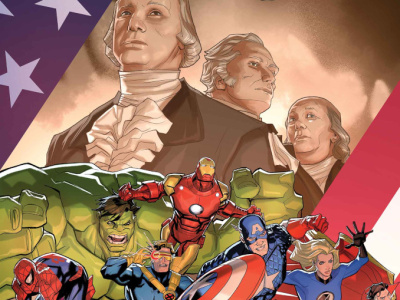Marvel Entertainment has announced the departure of two key members of its licensing team, Tim Rothwell, President of Worldwide Consumer Products, and Bruno Maglione, President of Marvel International. Although not nearly on the order of magnitude as the loss of Avi Arad (see 'Avi Arad Leaving Marvel'), the departure of Rothwell and Maglione could signal an end to the halcyon days of Marvel licensing.
Both were hired away from Universal by Marvel in 2003 (see 'Marvel Hires New Licensing Czar' and 'Marvel Looks Overseas') in the heady days following the success of the X-Men and Spider-Man movies, and both men played a role in the later stages of Marvel's phoenix-like rise from the ashes of Perelman-created bankruptcy, which was largely accomplished by infusions of risk-free licensing fees as Marvel parlayed its library of characters into cash and became primarily a licensing company in the process.
Perhaps Marvel's licensing mavens have just maxxed out the potential of the company's library of more than 5,000 characters (of which only a handful have demonstrated major licensing potential so far). Maglione was able to raise international licensing revenues as Marvel-based movies raised the worldwide profile of the top Marvel superheroes.
With Marvel now in its strongest financial position in decades, the company is beginning to take more risks (producing its own films for example), and while licensing remains the company's chief profit sector, it may soon lose its primacy as a revenue generator and it is subject to major fluctuations primarily based on when a Spider-Man movie is about to hit the theaters (licensing revenue was off 44% during the first quarter of this Spidey-less year). There is also the matter of how finely licenses can be sub-divided. With its major videogame deals in place and the toy license now going to Hasbro, how many major new licensing deals are possible?
Marvel's announcement of the departures of Rothwell and Maglione, who will each get a year's pay, medical care and pro-rated bonuses as part of their severance packages, did have an effect on its stock price which dipped 3% during the day before rebounding at the end of trading to a decline of 2.5%.







